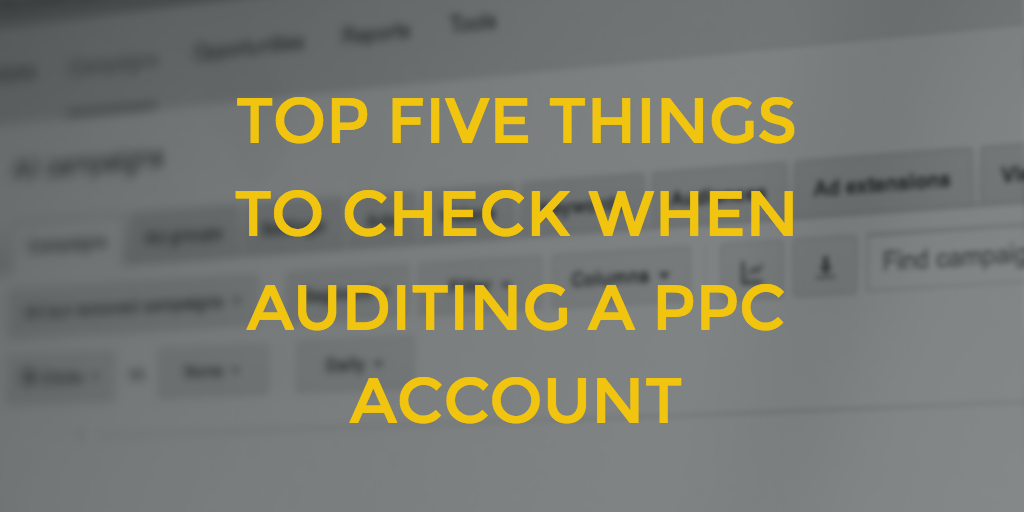
As an SEM manager, your job inevitably includes being a PPC auditor. Revisiting your own work to check on performance? Audit. Picking up business that’s changed agencies? Audit. Taking a look under the hood of an account that’s grown too big for a client to manage in-house? Audit. For an experienced SEM manager, taking an objective look at PPC accounts should be second nature.
So what does a good SEM account auditor look for? Are there “easy tells” that give you a poker-player’s instinct for questionable performance? If you want to improve your ability to put PPC under a microscope, here are five things that should be top of your auditing list.
1. Account Structure
An account that’s set up for success is one that’s properly structured. Is it messily organized, or put together by someone who understands what the M in SEM stands for? Account structure won’t tell you everything about an account, but it’s a common sense place to start, even if you think there’s a more deeply rooted problem to address. Ask yourself the following:
How is the account structured?
Is it segmented by match type?
Are there too many keywords in each ad group?
Are there too many or too few ads in rotation in each group?
Are the campaigns and groups in a naming convention that makes sense
2. Campaign Settings
Even the most promising campaigns are only as good as their settings, which can as easily prevent a campaign from reaching its goal as improve its chances. Ask yourself the following:
Does the campaign type and network match the goal of the campaign?
Are all devices being targeted?
Are there location targets in place that match the goal of the campaign?
Do the ad budgets make sense?
Do the Delivery and Rotation settings make sense for the campaign?
3. Match Type Distribution
Well structured accounts should deliver solid cost-per-click results for exact match types. Broad match can be used as a tool for casting a wider net for keyword discovery, but an analytical eye should be watching the associated cost. Check how your audited account treats match types and ask yourself the following:
What is the breakdown between match types?
Does the account rely too heavily on broad match targeting?
Does the account utilize modified broad match correctly, or at all?
Are ad groups segmented by match type or all they all lumped together?
4. Quality Score Assessment
Before you can try to improve quality score for a campaign, you have to understand it. Giving your scores context will tell you whether you’re onto a good thing or have a lot of room for improvement. How to get started:
Looking at an impression-weighted QS, what does the data tell you?
What percentage of keywords fall above or below the average QS mark?
What does the total account QS assessment look like?
What are some of the reasons for below average QS? Landing page relevance? Ad Copy?
5. Performance Benchmarks
Goals. We all have them. Some PPC accounts? Not so much. This can be especially true when taking over an account that’s been run in-house, with cost-per-conversion as the only real measure of success. That’s a valid one, but true account optimization can (and often should) start with some solid benchmarks to measure against. Ask yourself the following questions:
What are the overall goals for the account that performance is being measured against?
How does the current performance over the last 30, 60, 90 days measure to those goals?
Which metrics are falling behind in performance and what other metrics do those affect?
What are the baseline trends for metrics you want to measure against going forward? QS, CPC, CTR, Conversion Rate and Cost per Conversion?
These are just some of the questions you should be asking during an initial PPC account audit. But they’re important ones. Taking a methodical approach to your auditing is a great way to build your PPC auditing muscles.
Interested in working at an agency where SEM gets the respect it deserves? Check out our current open positions.
